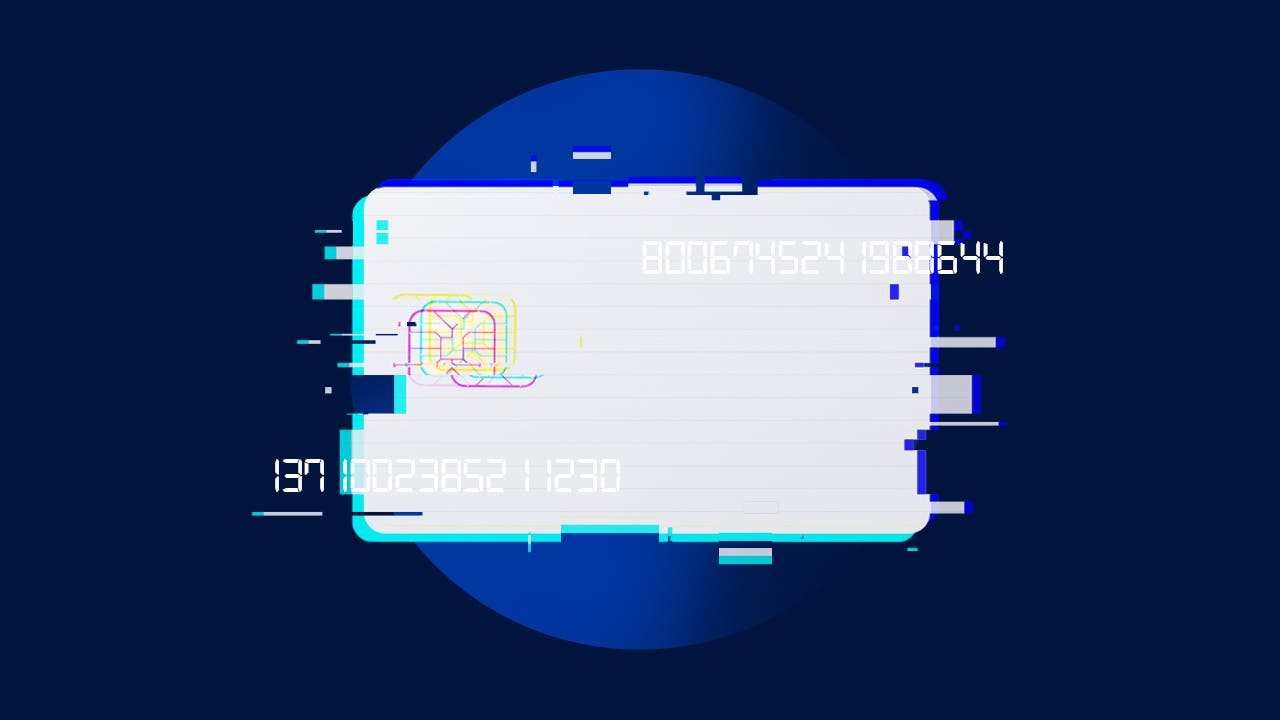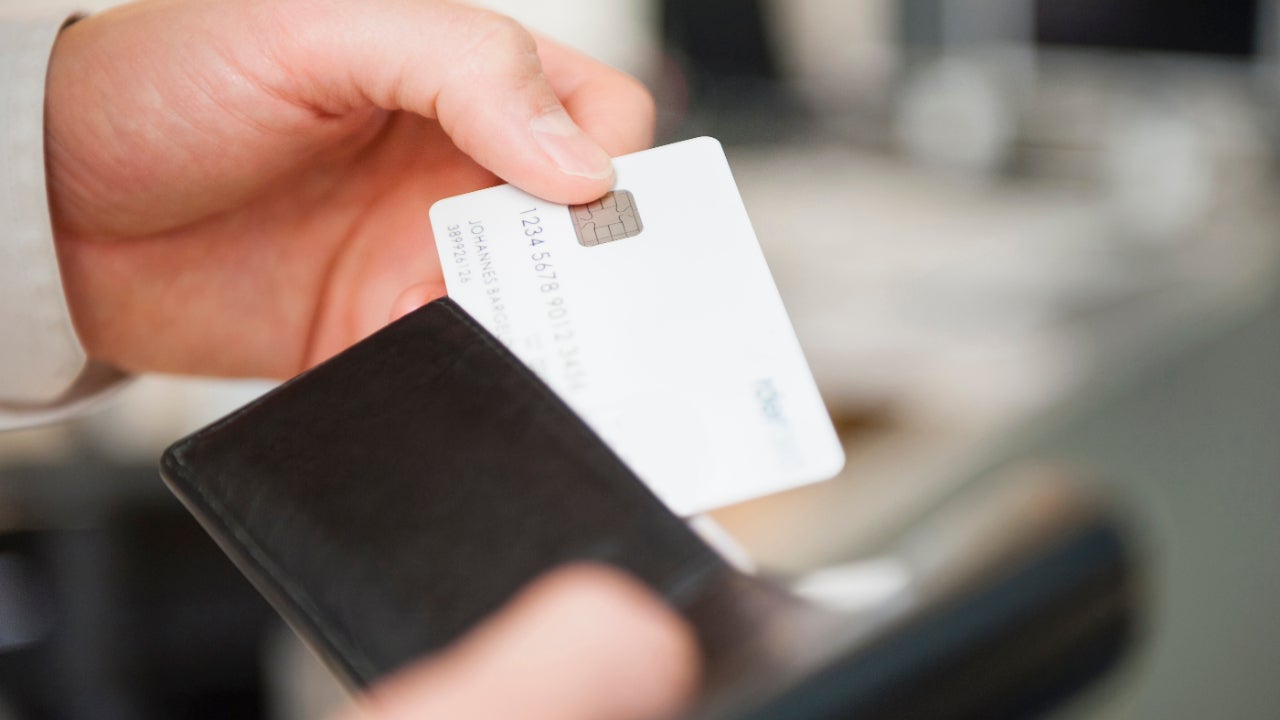What is a virtual credit card?

Key takeaways
- Virtual credit cards offer enhanced privacy and fraud protection when making online purchases.
- These cards are linked to an existing credit card account and can provide options for spending limits and expiration dates.
- Using a virtual credit card may have some downsides, such as limitations on refunds and complications with reservations for certain services.
If you’re a frequent online shopper, you’ve likely heard of virtual credit cards before and may be curious about how they work. In short, virtual credit cards let you shop for purchases without revealing your actual credit card account number. They can be either temporary or permanent. No surprise: They are intended mostly for online purchases.
However, virtual card numbers have some downsides. Keep reading to learn how virtual credit cards work, their pros and cons and how you can get one.
What is a virtual credit card?
A virtual credit card number is essentially a credit card number that works for your account but is different from the number printed on your physical credit card.
In some cases (like with Capital One’s Eno), this virtual number may be created by a third party on the spot and may be changed each time you make a purchase.
Using a virtual credit card can keep your physical credit card information safe when shopping online or over the phone. There are several ways thieves try to steal your personal data, but this short-lived, randomized credit card number — referred to as a “token” — is a way to keep that information safe when making purchases from a distance.
Keep in mind: Virtual credit cards are only available with an existing credit card, so you won’t have to worry about an additional hard inquiry on your credit report or credit score requirements.
How do you use a virtual credit card?
Virtual credit card numbers are linked to an existing credit card account and generated at random to prevent your actual bank account information from being shared online. From a merchant’s point of view, these numbers appear as a regular credit card number.
Depending on the issuer, cardholders may be able to request a virtual card number online through their credit card account. Once a virtual card number is generated, cardholders can access these numbers immediately and request spending caps, among other customizations.
Why should consumers use a virtual card number?
In terms of privacy, virtual credit cards minimize fraud risk by adding an extra layer of enhanced protection for consumers and businesses completing transactions online.
For individual consumers, virtual card numbers not only provide more privacy but also protect private banking information and limit data tracking from advertisers.
For businesses, virtual card numbers make it easier to manage cash flow while also improving fraud protection, controlling vendor payments and safely extending spending power to employees and contractors.
Overall, virtual credit cards are a good option for anyone who shops online and prefers a little bit of extra protection against the possibility of being hacked.
Are virtual credit cards safe?
In short, yes. Credit card issuers that offer virtual credit card numbers ensure secure protection by assigning a 16-digit number associated with an existing account. Cardholders can even set a PIN (personal identification number).
Most virtual card numbers are required to comply with PCI DSS (payment card industry data security standards), which ensures secure transactions between virtual card number owners, the credit card issuer and the merchant receiving payment.
Pros and cons of virtual credit cards
While virtual credit cards can be convenient to use, there are some downsides to consider. Here are the major pros and cons to expect if you use a digital credit card:
Pros
- Your long-term payment and personal information are better protected. Even if a potential hacker were to obtain your data from a virtual credit card transaction, the account number won’t be linked to your identity and will likely expire before they can take advantage.
- Your account’s risk of being compromised is low. It’s unlikely your data will be stolen, meaning you won’t have to shut down your credit card account, get a new card or have to redo all your recurring payments.
- Your transactions are posted to your account. If your virtual card is linked to your physical credit card, transactions are traceable and will appear on your usual bank statement as normal purchases.
- Tokens can be temporary or permanent. Depending on your card provider, you may be able to customize the length of time your token stays open or specify a spending limit. Both are useful features for any shared credit card accounts or if you elect to repeatedly use a token for a subscription, like Netflix or Audible.
- Your refunds won’t be affected. Even with a single-use token, refunds work as usual with a virtual credit card if it’s linked to your credit card account.
Cons
- Virtual cards are limited to online and phone transactions. For the time being, you can use virtual cards only when shopping on the internet or via phone.
- Problems arise if you don’t link your virtual card to your account. If your virtual account isn’t linked to your usual credit card account, you may run into obstacles when seeking a refund. Due to not having an account to credit back to, your options might be limited to an exchange or store credit.
- Reserving certain services may become more complicated. There are potential issues if you use a virtual card to make a reservation on services like flights, rental cars or hotels. Oftentimes, companies offering these services will request the card used to book the reservation, so it may take some extra effort at check-in, like a phone call to your bank.
How do virtual card numbers differ from mobile wallets and payment apps?
The most notable difference between virtual credit cards and mobile wallets (like Google Pay and Apple Pay) is where they are accepted. However, both mobile wallets and virtual card numbers are secure, and there isn’t necessarily one that is better than the other. Here are the most notable differences:
| Virtual credit cards | Mobile wallets |
| Virtual wallets are only available for online purchases. | Mobile wallets are largely accepted at most locations — online or in person. |
| Virtual card numbers mask your account information by generating a random number connected to your existing credit card account. | Payment apps, or mobile wallets, are connected to whichever debit or credit card number you have linked to your mobile device, and the transactions are approved with a single-use verification token. |
How to get a virtual credit card
With most major issuers, virtual card numbers are available for any credit card they offer, provided you take steps to initiate them on your account.
So, it’s possible virtual card numbers may already be available for your existing credit cards, as well as for any new cards. Explore your online account or app or contact customer service to see how to get access to a virtual number for your card.
Virtual credit cards by issuer
If you’re considering virtual credit card numbers to help keep your account safe, you should know which card issuers and credit cards offer this option. Consider how the following card issuers use virtual card numbers and make them available to customers.
- American Express: American Express offers virtual card numbers for valid U.S. Amex credit cards that are in good standing.
- Capital One: Capital One offers virtual credit cards through an in-house browser extension, Eno.
- Citi: Citi allows eligible cardholders to enroll online and use its website to generate a unique token whenever necessary.
- J.P. Morgan: Virtual credit card numbers are available to business owners with an eligible J.P. Morgan commercial card.
- U.S. Bank: Virtual credit card numbers are available to business owners with an eligible U.S. Bank corporate card.
- Brex: The Brex Card* can generate unlimited virtual credit cards for free for employees.
- Divvy: The BILL Divvy Corporate Card comes with an unlimited number of virtual credit cards for online use.
The bottom line
Virtual credit cards can hide your real credit card number in order to protect the sensitive details of your account. Depending on your card issuer, your use of virtual card numbers could even be automatic, with no work required on your part.
Keep in mind, however, that using a traditional credit card for purchases isn’t inherently risky, and that’s true whether you’re shopping in person or online. This is due to the fact that credit cards tend to offer zero liability for fraud, so you won’t be on the hook for purchases you didn’t make either way.
Frequently asked questions about virtual credit cards
*The information about the Brex Card has been collected independently by Bankrate.com. The card details have not been reviewed or approved by the issuer.
Why we ask for feedback Your feedback helps us improve our content and services. It takes less than a minute to complete.
Your responses are anonymous and will only be used for improving our website.






